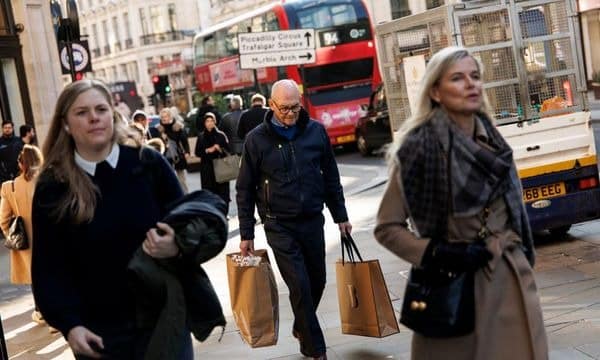The UK economy experienced a further contraction in October, according to official data, underscoring the significant hurdles facing Rachel Reeves in her ambition to secure the highest growth rate in the G7.
ONS Reports Consecutive Monthly Contractions in UK Economy
The Office for National Statistics (ONS) reported a 0.1 percent decline in output for October, following a similar decrease in September. This marks the first instance of consecutive monthly contractions since March and April 2020, at the onset of the Covid-19 pandemic.
Main Economic Indicators:
- GDP Change (October): -0.1%
- GDP Change (September): -0.1%
- Previous Contraction Months: March and April 2020
Economy Stalls Amid £40 Billion Tax Hike Announcement
After beginning 2024 with robust growth that positioned the UK as the G7 leader, the economy has since stalled in the latter half of the year. The latest figures were released just ahead of the government’s initial budget, which unveiled £40 billion in proposed tax increases.
Sectors Await Tax Outcomes Amid Turnover Declines
Several sectors, including manufacturing, retail, and recruitment, indicated that their turnover was adversely affected as they awaited the outcomes of the tax-setting announcement, as noted in the ONS’s monthly business survey.
Affected Sectors:
- Manufacturing: Declines in output and sales
- Retail: Weakened consumer spending
- Recruitment: Hesitance in hiring
Unexpected Downturn Challenges Economic Expectations
This unexpected downturn poses a significant challenge for Ms. Reeves, as economists had anticipated a modest GDP growth of 0.1 percent for the month.
The Chancellor described the latest statistics as disappointing but maintained that the government has implemented policies aimed at fostering long-term economic growth. “We are committed to driving economic growth, as higher growth translates to improved living standards for all,” she stated.
“Our Plan for Change encompasses measures to stabilize public finances, maintain the lowest corporation tax rate in the G7, establish a £70 billion National Wealth Fund, launch a decade-long infrastructure strategy, and create pension mega funds to enhance investment in British enterprises, infrastructure, and clean energy.”
Mixed Sector Performance Highlights Challenges
Liz McKeown, director of economic statistics at the ONS, remarked, “The economy contracted slightly in October, with services showing no overall growth and declines in both production and construction.
Weak performances were noted in oil and gas extraction, hospitality, and retail, but some growth was seen in telecommunications, logistics, and legal services. Nevertheless, the economy did exhibit slight growth over the preceding three months.”
Sector Performance Overview:
- Declining Sectors:
- Oil and Gas Extraction
- Hospitality (Pubs and Restaurants)
- Retail
- Growing Sectors:
- Telecommunications
- Logistics
- Legal Services
Labour’s Growth Strategy Faces Criticism
Labour has positioned economic growth as central to its economic strategy, yet concerns persist regarding the impact of the significant tax increases announced in the budget. The Liberal Democrats have urged the government to reconsider its rise in employers’ national insurance contributions.
Opposition Calls for Action on Tax Burdens
“This unexpected GDP decline highlights the disappointment in the Budget, which squandered numerous opportunities and made counterproductive choices. Small businesses are the backbone of our economy and drive growth, yet this government has chosen to impose additional burdens on them. If the government is serious about reversing these figures, it must acknowledge its misstep and rescind the NICs increase affecting small businesses.” Treasury spokesperson Daisy Cooper.
Shadow Chancellor Warns of Broader Economic Impact
Meanwhile, shadow chancellor Mel Stride warned that the repercussions of declining growth would be felt by families in the form of higher taxes, fewer job opportunities, rising prices, and elevated interest rates. “It is no surprise that businesses are raising alarms. This growth decline starkly illustrates the effects of the Chancellor’s decisions and his continual negative rhetoric about the economy,” he commented.
CBI Offers Cautious Optimism for Future Growth
In contrast, the Confederation of British Industry (CBI) expressed cautious optimism for UK firms. “Businesses are hopeful that conditions will improve in the New Year,” stated Ben Jones, the organization’s lead economist. “It may take several months for firms to adjust to the substantial increase in employment taxes outlined in the Budget,
but there is potential for a gradual, if unremarkable, economic recovery next year as the effects of inflation subside and interest rates decrease further. The government can bolster business confidence by expediting measures that could create more investment opportunities.”









